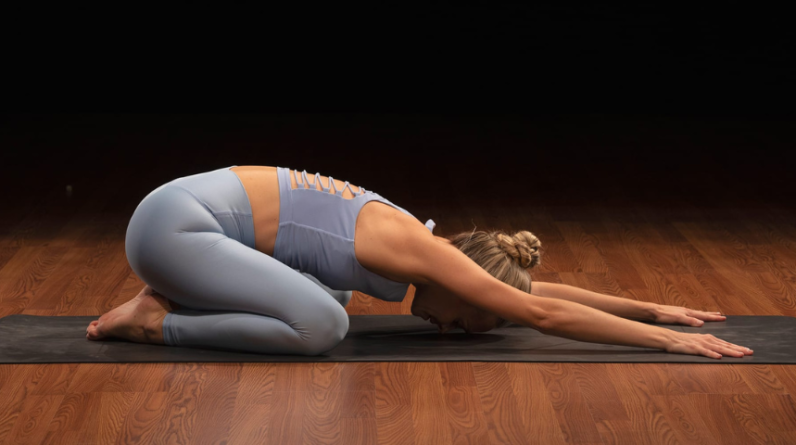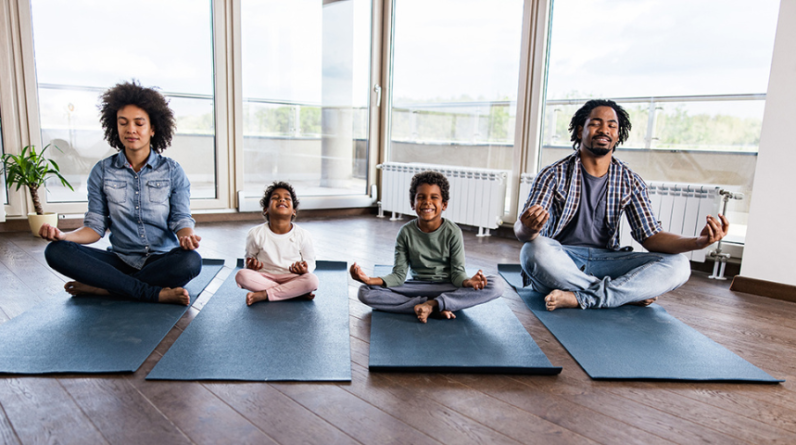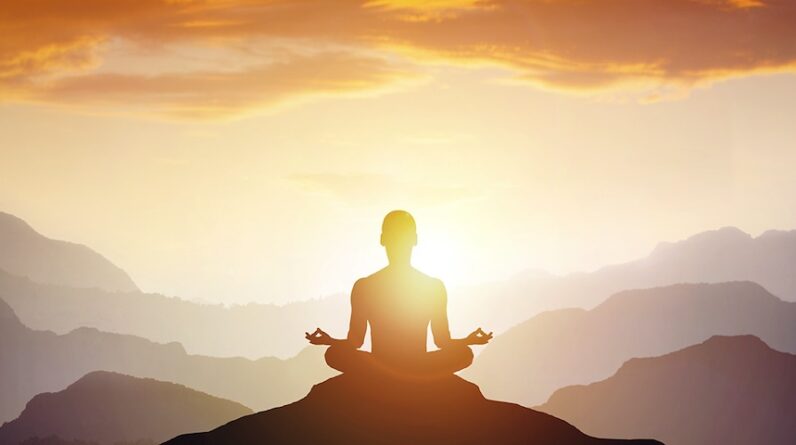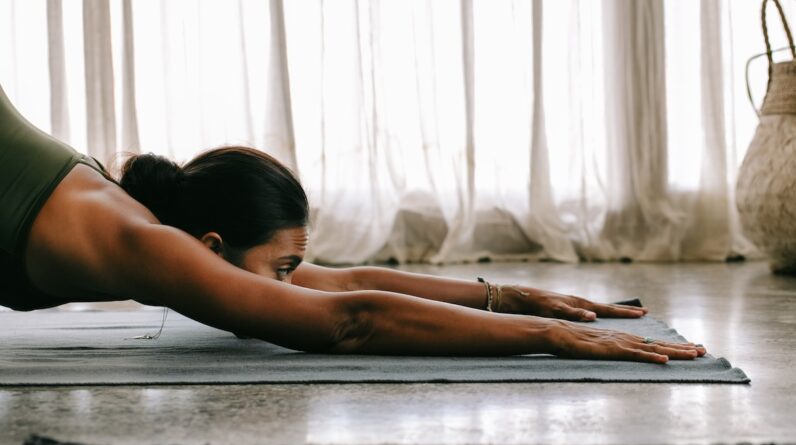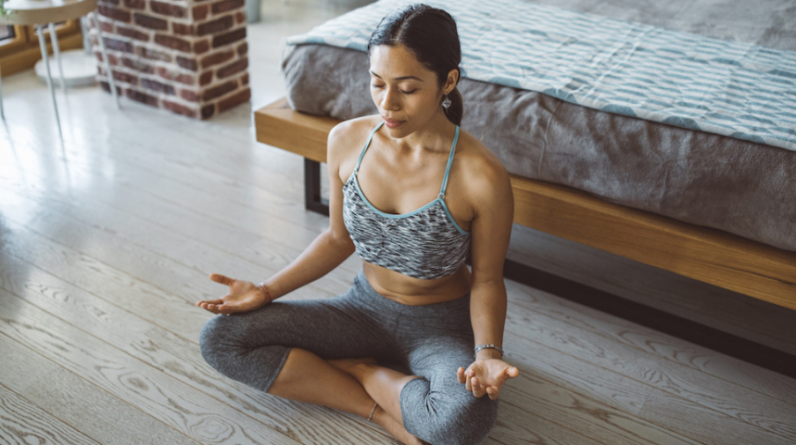
Rise and shine, yogis! It’s is time to wake up, roll out of bed, and unroll your yoga mat. A morning yoga flow is the perfect way to awaken your mind and body to start your day.
There is no reason to shell out thousands of dollars on fancy yoga retreats to reap the benefits of yoga. Even five to 10 minutes of yoga in the morning can have you feeling refreshed and invigorated to handle anything that comes your way.
Benefits of Yoga in the Morning
While yoga can be beneficial at any time of day, practicing yoga in the morning can be especially helpful.
“A morning yoga routine can serve as a perfect way to gradually warm and awaken the mind and body after a restful night’s sleep, preparing you for whatever the day might have in store,” says Jessica Matthews, DBH, E-RYT 500, award-winning yoga educator and author of Stretching to Stay Young.
Here are some other benefits of yoga that can help jumpstart your day:
Which Type of Yoga Is Best in the Morning?
There are many different types of yoga, and each style may appeal to different people. When it comes to morning yoga stretches, though, we recommend vinyasa yoga.
This type of yoga links breath with movement and allows you to create a “flow” as you move from one pose to the next, Matthews explains.
“Much like a warm-up at the start of a workout, this type of dynamic yoga practice energizes the mind and body, gradually preparing the body as an integrated unit by utilizing exploratory movements and foundational postures linked with the natural rhythm of the breath to establish optimal joint stability and mobility,” Matthews says.
“Practicing asana dynamically and in an intelligently sequenced manner gradually raises the body’s internal temperature and enhances neuromuscular efficiency, helping to develop more effective, pain-free movement patterns and improved body awareness,” she adds.
Morning Yoga Routine
This 10-minute morning yoga sequence developed by Matthews begins with a moving breath exercise called Bellow’s Breath.
“Sometimes referred to as ‘yogic coffee’, this energizing breathing technique increases mental activation and alertness,” Matthews says. Go at your own pace throughout this sequence, following your breath.
1. Bellow’s breath (bhastrika) with overhead reach
- Assume a comfortable seated position of your choosing, such as easy seated pose (sukhasana). Bend your elbows at shoulder height. Align your elbows with your shoulders. Stack loose fists over your wrists.
- Maintain the length of your spine, and take two-to-three deep, diaphragmatic breaths through your nose.
- On the next inhalation, inhale through the nose while extending your arms overhead, palms meeting above your head at the top.
- On the exhalation, breathe out your nose, bending your elbows to lower your arms back to the starting position.
- Repeat for even breath cycles (one inhale, and one exhale counts as one cycle).
- Rest with your hands on your thighs. Turn your palms up to receive the energy around you.
2. Bridge pose
- Lie down on your back and bend your knees. Track your knees over your ankles. Separate your feet hip-distance apart. Reach your arms long toward your toes.
- Inhale to lift the hips toward the ceiling. Keep your hips lifted and touch your head, neck, and shoulders to your mat. (Avoid gazing right or left to protect your neck).
- Exhale, slowly lower to the starting position.
3. Cat/cow pose
- Come to all fours. Stack your shoulders above your wrists and your hips over your knees. Neutralize your spine, draw your abs toward your spine.
- Inhale for cow pose, opening up your chest and dropping your head back between your shoulder blades. Think about compressing your hips and shoulders toward one another.
- Exhale for cat pose, rounding your spine and drawing your hips toward your chest. Pull your chin down towards your chest.
- Repeat the motions to warm-up your spine.
4. Crescent lunge variation
- From all fours, step your right leg forward between your palms, and extend your left foot long behind you.
- Inhale, sweep your arms above your head with your biceps by your ears. Sink your hips down low. Drop to your back knee.
- Exhale, release your right arm alongside your body, and reach your left fingertips over your head. Push your hips forward to deepen the stretch in your hip-flexors, while you stretch your left side.
- Come back through the center and return to all fours.
- Switch sides, repeating with the left foot forward and right arm reaching up and overhead.
5. Child’s pose with a twist
- From tabletop, touch your big toes together and place your knees hip-distance apart. Sink your hips toward your heels, draw your belly down to the mat, and reach your arms forward (option to wrap your hands around your heels).
- Inhale, lift your right arm away from the mat. Exhale, thread your arm underneath your left arm to twist your torso and stretch your right shoulder.
- On the next inhalation, unthread your right arm.
- Exhale to repeat the movements on the left side.
- Return to child’s pose with both arms extended.
6. Plank to downward facing dog
- Return to all fours.
- Assume a plank position, stacking your shoulders over your wrists, lengthening your spine, and straightening your legs behind you.
- Straighten your arms and send your chest toward your thighs as you pike your hips toward the ceiling to make a pyramid shape with your body. Try to drop your heels toward the mat (it’s OK if your they don’t touch the floor).
- Option to transition between downward-facing dog and plank pose to warm up your shoulders.
7. Star pose to goddess pose
- From downward-facing dog, walk your feet to your hands. Slowly rise to a standing position, uncurling your spine until your shoulders stack over your hips.
- Step your feet three-to-four feet apart in a wide split-leg stance. Turn your heels in and your toes out.
- Inhale, and extend your arms overhead in a V-shape. Keep your arms wider than shoulder-width and turn your palms forward. Spread your fingers wide.
- Exhale, lower into a deep squat position. Bend your knees and align them with your shins. As you squat, bend your arms and draw your elbows toward your ribs. Squeeze your shoulder blades together while maintaining length in your spine.
- Continue this rhythm breath-to-movement. With each inhalation, straighten your hips, knees, and elbows. With each exhalation, bend your hips, knees, elbows, and draw the shoulder blades together.
Why Should You Practice Yoga?
Yoga is great for decreased stress, improved focus and mood, better sleep, stronger bones, and even more muscle strength.
Plus, yoga may help you perform better at work. In a recent study published in the Journal of Alternative and Complementary Medicine, 61 professionals did five hours of yoga, meditation, and lectures for five days.
Following the study, the participants had significant improvements in psychological and occupational well-being compared to professionals not in the program.
If you want a yoga practice that you can do from the comfort of your home, try Yoga52‘s series of classes on BODi. Divided into three different levels of practice that include both restorative and dynamic flows, the program provides world-class instruction and cues so precise that you don’t even need to look at your screen.



